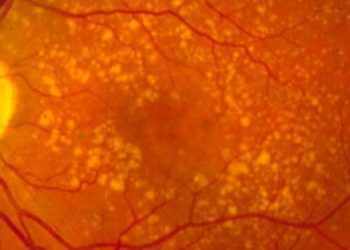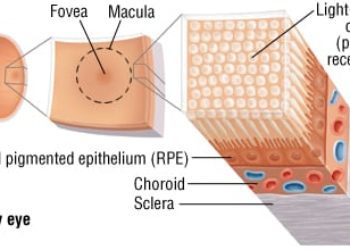Intravitreal bevacizumab injections effective for treating central serous chorioretinopathy
1. Intravitreal bevacizumab injections for central serous chorioretinopathy show long-term outcomes of complete remission in 90% of patients,
2. Thick choroids and serous retinal detachment at baseline were risk factors for recurrence.
Evidence Rating Level: 2 (Good)
Central serous chorioretinopathy (CSC) is an ocular disease characterized by retinal detachment due to the presence of serous fluid. Though acute CSC is often self-limiting, treatment is often recommended to decrease risk of irreversible visual loss. Chronic CSC can also lead to permanent visual defects. Treatment with photodynamic therapy is more superior and consistent than intravitreal anti-VEGF medications but requires specialized equipment and may result in unwanted complications. Intravitreal anti-VEGF medications, including intravitreal bevacizumab injections (IVBI), thus have a role in treatment despite clinical outcomes being more inconsistent. The long-term treatment outcomes of IVBI injections has not been studied. In this retrospective, interventional, single-center study, patient information was extracted from those who underwent IVBI treatment for CSC (which included injections every 4 weeks until complete resolution (CR) was achieved) and had at least a 2-year follow-up (mean follow-up 35 months). Information on a total of 44 patients and 45 eyes was collected, among which 40 eyes were able to achieve complete remission. The primary outcome, to measure treatment response, showed that of the 40 eyes with at least one CR, 20 had developed at least one recurrence with an average duration of 11.6 months ± 6.4 months from CR to first recurrence. As well, the average number of IVBI required to reach first CR did not differ significantly among eyes that had or did not have previous recurrences (2.6 ± 1.6 vs. 2.9 ± 1.9, p=0.658). The secondary outcome, to determine if there are any factors that are related to recurrences, revealed patients with baseline characteristics of thick choroids (subfoveal choroidal thickness > 300um, B=1.980, p=0.019) and serous retinal detachment (B= -2.580, p=0.032) were associated with higher risk of recurrence. This study confirms the potential of IVBI as a potential treatment option for those desiring treatment and avoiding or are unable to access PDT therapy, as 90% of eyes were able to achieve at least one complete remission.
Click to read the study in PlosONE
Image: PD
©2020 2 Minute Medicine, Inc. All rights reserved. No works may be reproduced without expressed written consent from 2 Minute Medicine, Inc. Inquire about licensing here. No article should be construed as medical advice and is not intended as such by the authors or by 2 Minute Medicine, Inc.






